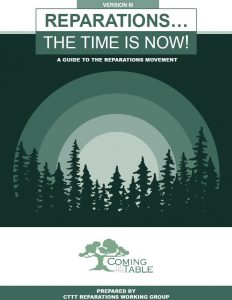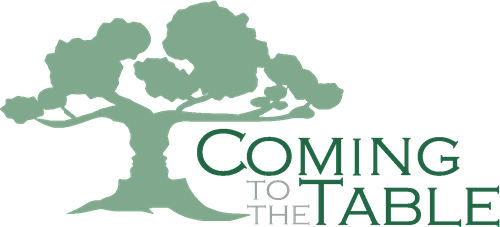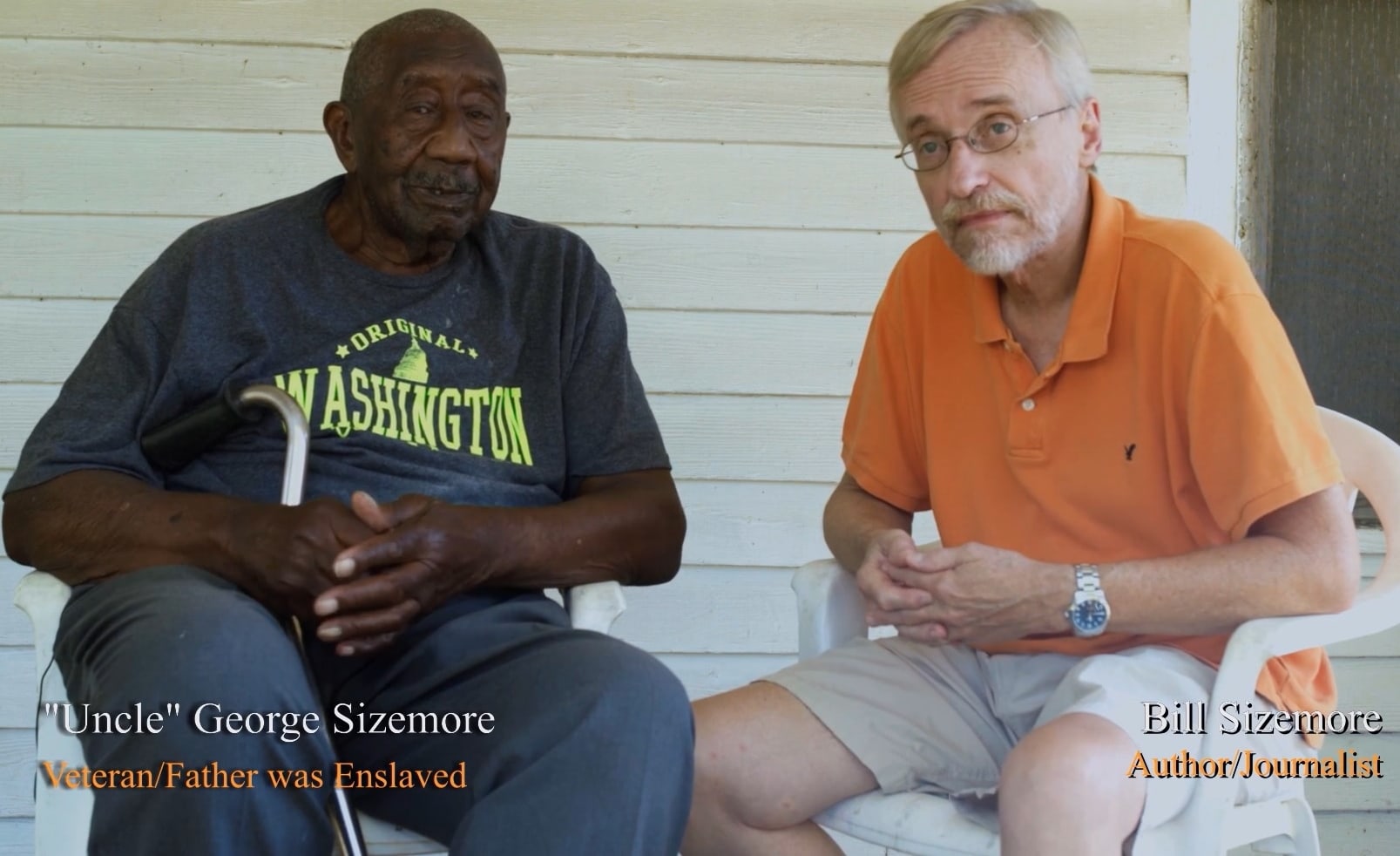 Reparations Work is a vital part of Coming to the Table because it provides avenues to impact racial justice directly in the community, whereas our other Groups (i.e. Linked Descendants, Mindfulness, etc.) support very crucial racial healing on more personal levels.
Reparations Work is a vital part of Coming to the Table because it provides avenues to impact racial justice directly in the community, whereas our other Groups (i.e. Linked Descendants, Mindfulness, etc.) support very crucial racial healing on more personal levels.
Much of this group’s work has been focused on publicizing the CTTT Reparations Guide, which you can read and download HERE. We hope the CTTT Reparations Guide will help spur action on reparations by CTTT members and local groups.
Members of the National Reparations Group have written and contributed to articles about reparations. Click Here to read an article that members of the group contributed to. Click Here to read Laura Hill’s Opinion Piece from March 2021 in The Virginian-Pilot, “It’s past time for Congress to consider reparations.” Laura served as co-chair of the Reparations Working Group. The members of this group put themselves “on hold” after completing the Reparations Guide in order to focus on specific reparations work. At such time as the guide needs updating, the group will come back together.
Martin Luther King explains ‘Reparations’
King saw reparations as an avenue for the repayment of some of what our nation and other entities unfairly denied or stole from African-Americans. Coming To The Table agrees with that assessment, and also believes that reparations can offer a way to breach our nation’s enormous racial divide by fully acknowledging and atoning for the harms of slavery and its aftermath.
We believe our nation cannot be healed until that is done.
Uncle George and Bill Sizemore’s conversation via the documentary, The Other Side of the Coin: Race, Generations, & Reconciliation. This film is a collection of experiences and thoughts addressing the complexities of race in America. The participants featured in our film represent a span of different generations, which presents its own unique challenges. These challenges tend to reignite historical transgressions into the fold of present-day ideologies, begging the question: How do we reconcile for the sake of future generations and humanity? (Click on the image at left to watch)
The Reparations Working Group would like to acknowledge that there are many groups currently working on reparations and some have been working on reparations for a long time. A list of some of these groups include:
- Gwynn’s Island Project
- Kilby Family Endowed Scholarship Fund
- Movement for Black Lives They have a Toolkit which you can download by clicking Here
- National African American Reparations Commission (NAARC)
- National Coalition of Blacks for Reparations in America (N’COBRA)
- Reparations4Slavery
- The Reparations Project
- The Howe Scholarship Endowment
To stay informed about and get involved in the reparations movements happening nationally and locally, the CTTT Reparations Group recommends that you join the mailing lists for the groups listed above that have them.
What do we mean by Reparations?
Coming to the Table (CTTT) defines reparations as the taking of affirmative steps to repair the historic injustices done to African Americans during slavery, Jim Crow and later. Those responsible for instituting, carrying out or benefitting from the injustices — the United States government, businesses, institutions and white Americans – should be the ones engaged in the reparative actions, which can take many forms including monetary payments, apology and others, such as those included in the CTTT Reparations Guide.
When the average American hears “reparations,” they may think of some form of compensatory payment to individuals who are descendants of people who were enslaved. However, CTTT believes that the generational harm that has been done to African Americans extends more than a century beyond the end of slavery. It is important that reparations involve white Americans understanding and acknowledging the nature and extent of the harm that has been committed to African Americans and making a commitment to never repeat the injustices again and to repair the harms that still exist today, which could include making monetary recompense.
Without that understanding and agreement as to the true nature of the harm and the parties responsible, there is no atonement. There is no apology. There is no forgiveness. There is no healing. And healing of our nation’s racial wounds is the ultimate goal of Coming to the Table’s work.
Our Pledge
The following is an agreement or pledge that can be accepted by those of European descent using the CTTT Reparations Guide or working to support reparations:
“I recognize, acknowledge and understand the terrible and long-standing injustices done to African Americans in this country during slavery, Jim Crow and beyond. I acknowledge that although I, personally, might not have caused these injustices, as a white American I accept that I and my ancestors have reaped the benefits that accrued to me as a result of these injustices toward African Americans. Because it is not possible for my ancestors to remedy any injustice today, I take responsibility for repairing the harms that still exist on their behalf and on mine.”
Our Group's History
Founded in 2015, the CTTT National Reparations Group was composed of Coming to the Table members who are very much oriented to “Taking Action,” one of the four pillars in CTTT’s approach to achieving its Vision and Mission. The group was formed after several community conference calls on “reparations” and a subsequent solicitation for volunteers.
From 2015-2017, the group worked to organize into a coherent document all the reparations ideas put forth by CTTT members during the initial conference calls, two breakout sessions at the 2016 CTTT National Gathering, and in response to a solicitation of ideas in the June 2017 CTTT Newsletter.
In June 2017, the Reparations Group reached out to other groups who have been working on reparations efforts. CTTT believes that to be effective, we must collaborate with other like-minded organizations, if significant reparations efforts are to succeed.
In January 2018, the CTTT Reparations Group released the first version of the CTTT Reparations Guide in honor of Dr. Martin Luther King’s birthday, and because 2018 marked 50 years since Dr. Martin Luther King spoke forcefully about the need for reparations.
In June 2021, the CTTT Reparations Group released the third version of the CTTT Reparations Guide.

